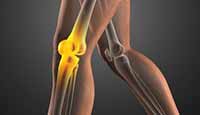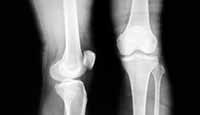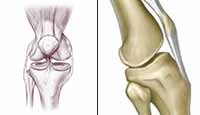A procedure in which the damaged or broken hip parts or areas are replaced with synthetic and artificial materials with durable and smooth substance to help make joints work properly is called hip replacement. To know what type of surgery is needed, the person that will undergo replacement should be examined by orthopedic surgeon. Nowadays, one of the most effective solutions to recuperate damaged hip due to arthritis or injury is hip replacement surgery.
Understanding Partial and Total Hip Replacement
Understanding hip replacement is important to be able to prepare for the surgery. First, we need to understand the difference between partial and total hip replacement. Now, both partial and total replacement will need a replacement in certain or all areas of the hip. In partial hip replacement, only half of the hip joint needs replacement. This occurs once the ball of the femur gets worn-out hence limiting movement and motion of the leg and creating ache and discomfort while walking. Total hip replacement, however, uses a synthetic joint in order to replace whole damaged hip framework. The process is similar to the partial replacement surgery, just this point the socket is replaced as well with synthetic.
Some Preparations You Can Do Before Undergoing Hip Replacement Surgery
Oftentimes, when you have made a decision to go for hip replacement surgery, you’ll be given a full physical examination by the GP to make sure you are generally in good health and sufficient to undergo the surgery and find out regardless of whether you have conditions or problems which may affect the procedure or even your healing. Other tests you need to go through like a chest x-ray, cardiogram, and urine and blood samples. If you are taking any medicine, it is important that you let your GP know about this so that they can give you advice prior to the surgery.
It's good to donate blood prior to surgery. You may need blood while in or following the surgery. Moreover, overweight may increase risks of surgery and will put more force on your artificial joint which could affect to your recovery. Have a dental check-up prior to the surgery. Even regular teeth’s cleaning isn’t recommended for a few months following the surgery. Finally, your skin must not have problems or bacterial infections when you go through surgery. Consult your GP to get a treatment if you are experiencing any of these.
In conclusion, it is important to understand what the hip replacement surgery can affect you. Hip replacement surgery won't allow you to perform greater than was doable before. After the surgery, it is strongly recommended that you refrain from certain actions and high-impact sports such as jogging, basketball or cycling. You should also need to avoid particular posture of hip joint that could result in dislocation.
Hip replacement surgery has become an excellent and efficient treatment to repair hip injury. It is important to consider your alternatives by consulting with your GP so that you could be sure if this procedure suits your current condition.




 bounce back and have a fresh start.
bounce back and have a fresh start. ligaments are in good hands.
ligaments are in good hands.